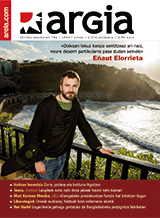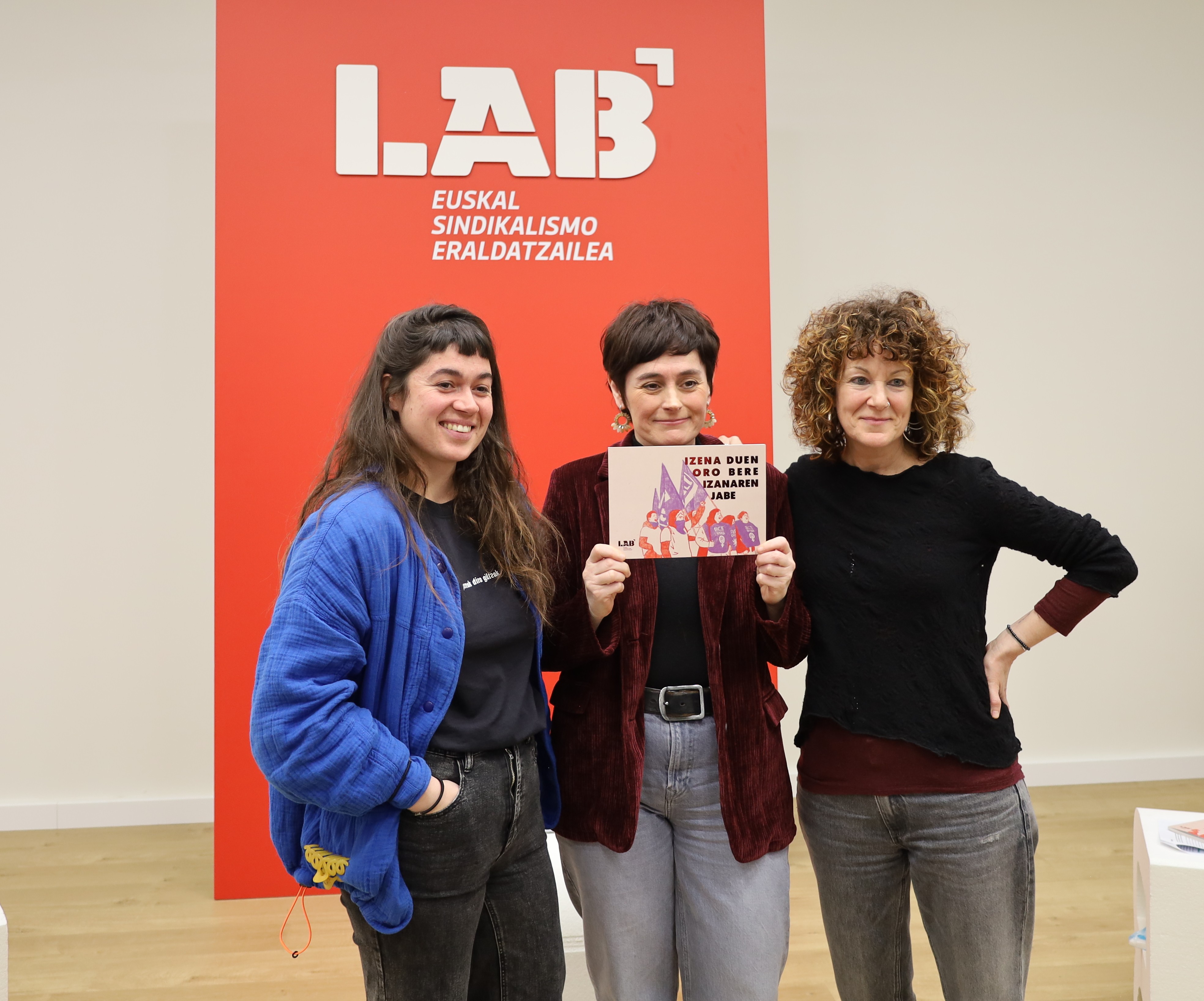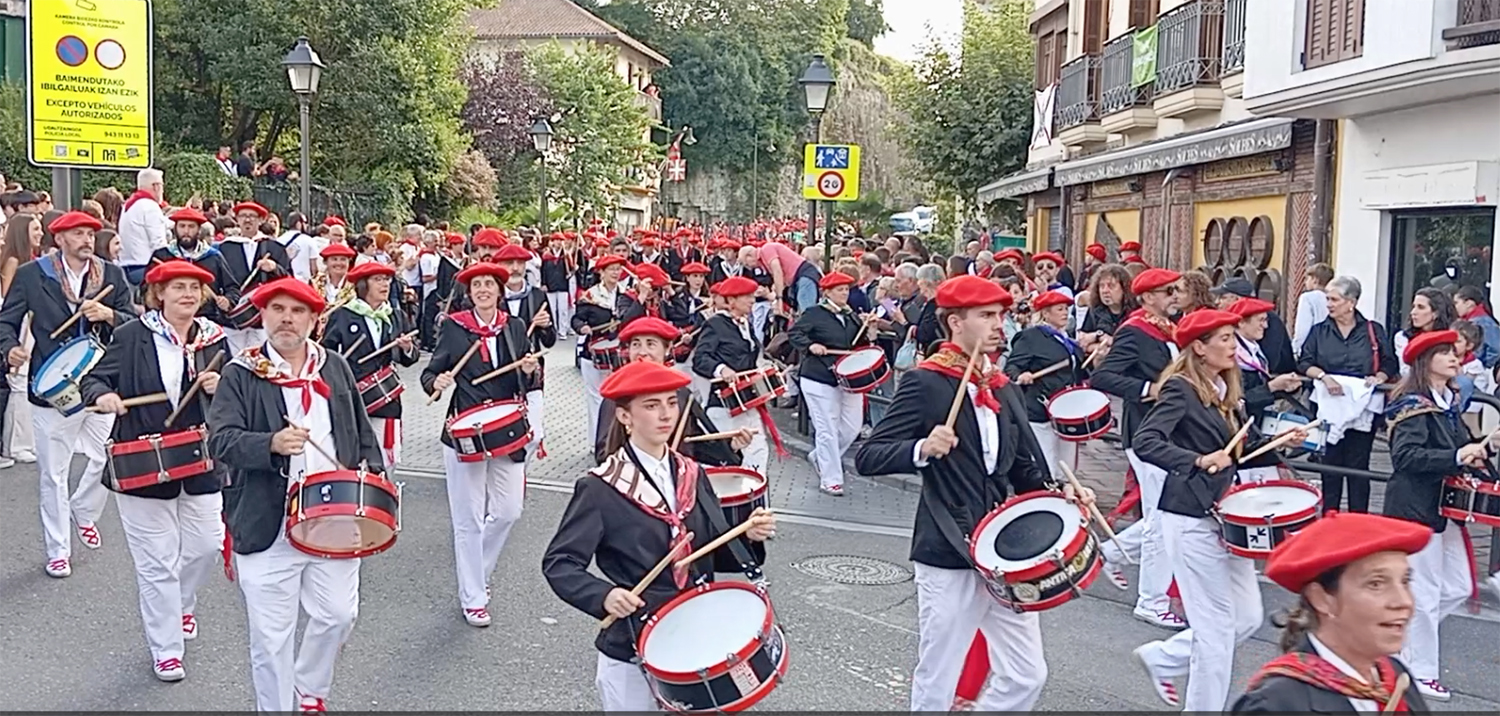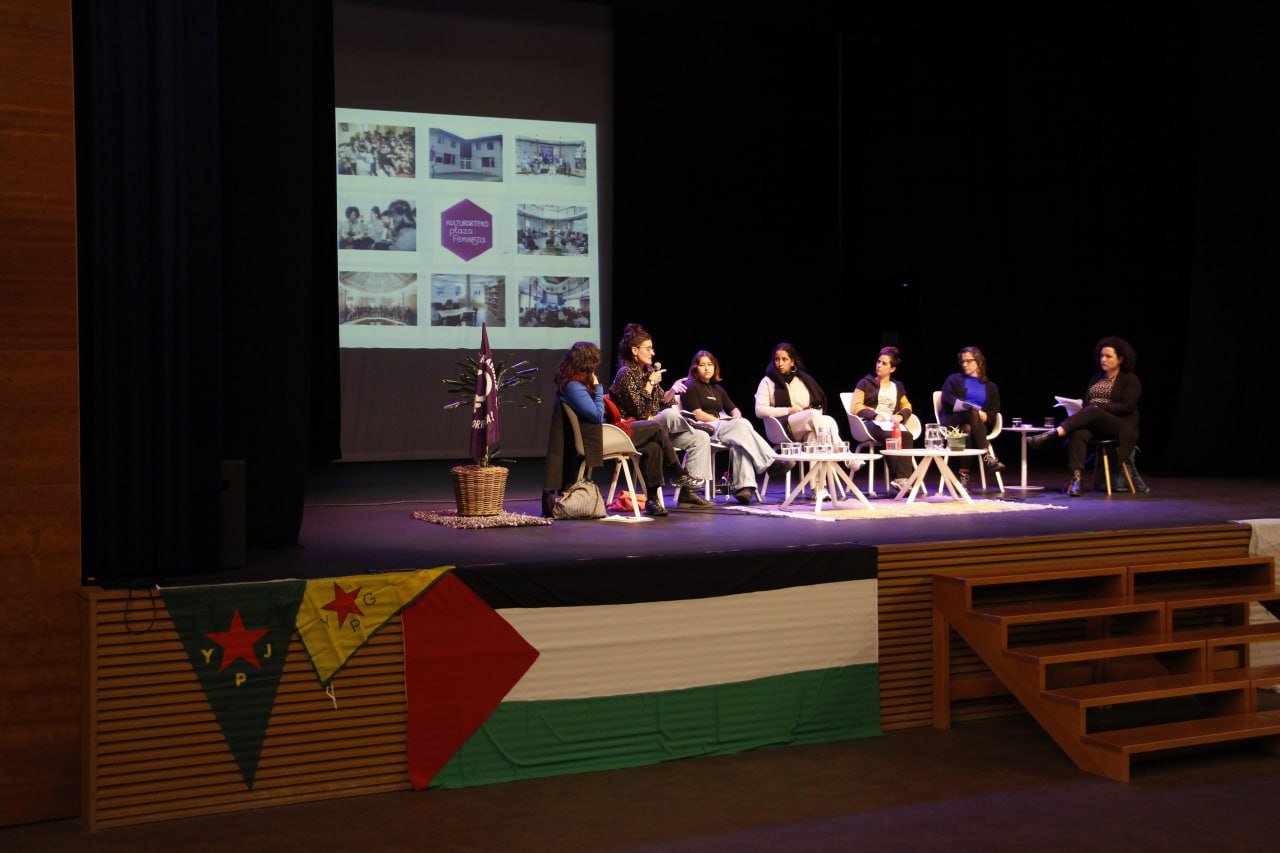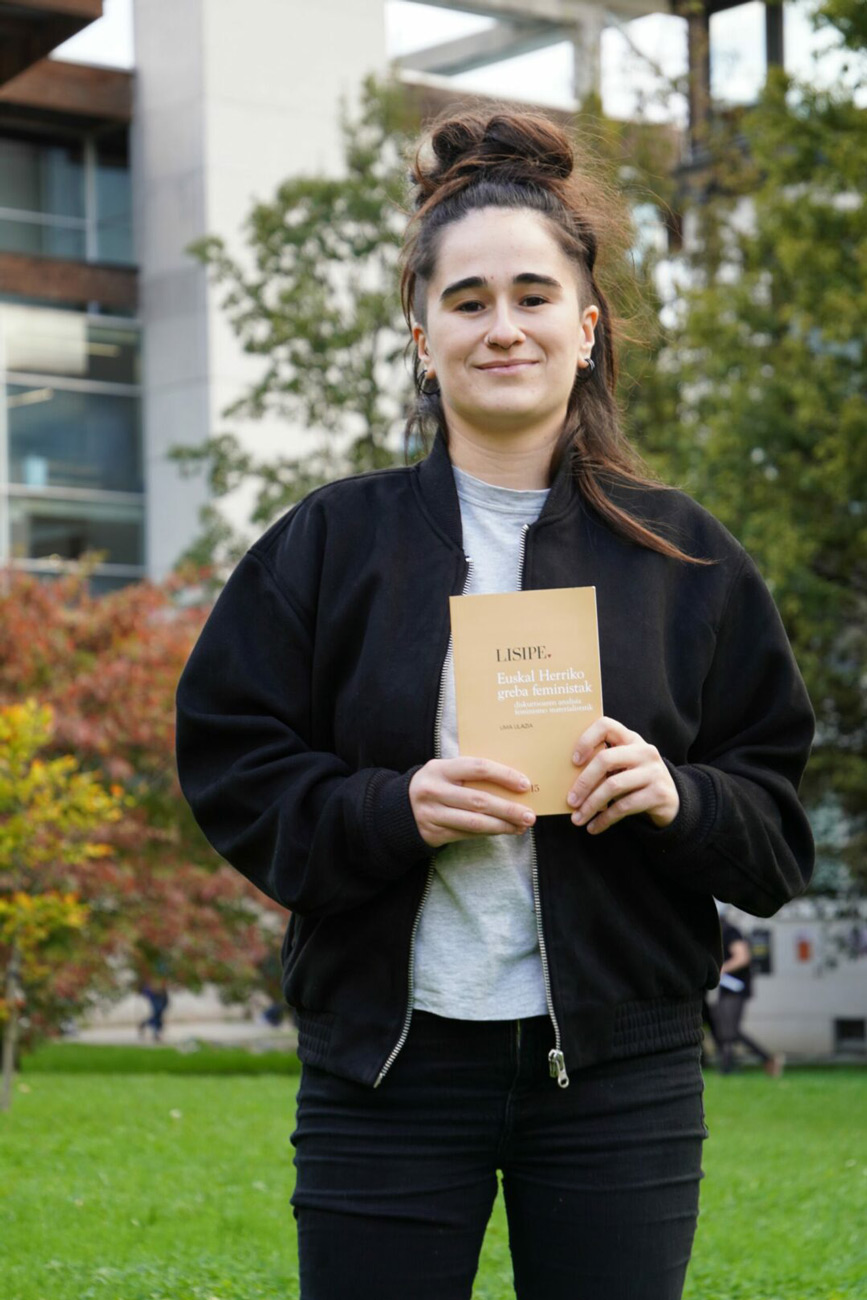Editor yes, director no
- If it is not the result of a male society, how can we understand that 67% of graduates from the Faculty of Journalism of the UPV/EHU in the last decade are women – although 83% of the best qualifications are women – than in the CAV drafts and in the media management teams the majority are men?
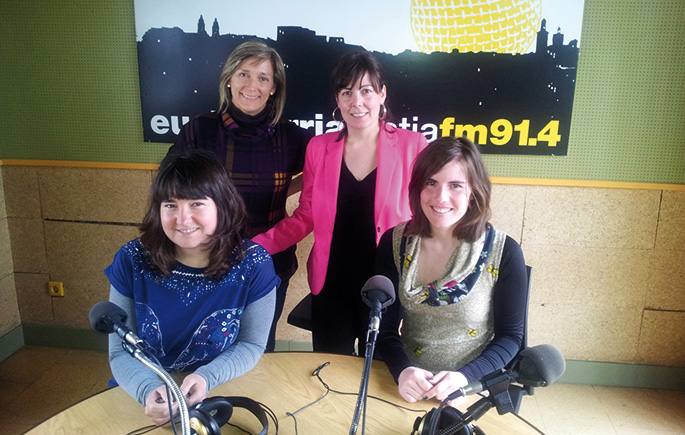
“But what mania you have for women! Instead of making self-criticism, or perhaps instead of thinking that you are not enough for that position, you think it is by machismo.” Those words that they received from the boss when he was a journalist led Diana Rivero to look at the data: “When you claim something, because if you don’t rely on data, there’s always someone willing to argue otherwise.” And the data is clear. According to the General Media Study (EGM), a Spanish State meter, in the CAV media 76.9% of the directors are men, in the middle positions 67.4% are men and in the redactions 62.7%. The professor of the Department of Journalism II of the UPV/EHU Diana Rivero has collected these data in her doctoral dissertation.
He recently presented his thesis in the Women and Media Conference, and explained that television is the one with the most equal number of men and women, although there are other reasons behind it: “When the image is present, women are used more”. This is the conclusion reached by Rivero from the three discussion groups he conducted in his research. “Another thing is what these television journalists are asked to do, that is, what is the image of them, if they appear as protagonists or as collaborators. The fact is that we are fifty-fifty and, as the professionals themselves confessed to me, where there is a picture is because women work better.”
The media inside
The media analyzed in the thesis are those that appear in the EGM. Thus, Rivero has analyzed 16 media outlets: El Correo (Delegations of Bizkaia and Araba), Deia, El Diario Vasco, Gara, Berria, El País (edition País Vasco), El Mundo (edition País Vasco), Punto Radio (delegation), Cadena SER País Vasco, COPE (delegation), Onda Cero (delegation), Radio Gorbea (delegation). According to the data collected, 62.7% of journalists working in the newsroom are men and 37.3% are women, men and women. The margin opens more if the address looks at it: 76.9% men and 23.1% women.
To complete the picture, we wanted to know if the situation is repeated in other media working in Basque. We have requested data from ARGIA, Euskalerria Irratia, 11 Telebista, the Goiena group and the weekly Anboto. Men are also more responsible: 58.3% of managers are men. In the redactions the situation is different. In this case, there is an important difference regarding the data collected in the thesis of Professor Rivero: there is a feminization of the redactions in those media that speak Basque: 62.4% of women are women. Regarding the writing of Goiena (64%), 11 telebist (55.5%), Euskalerria Irratia (57.1%) and Anboto (83.3%), women are still the first to appear. However, of these five media, only one woman is a director: In the weekly Anboto de Durangaldea. As seen, therefore, the photo is repeated, both in the large media and in the small ones:In the decision-making spaces of El País, El Mundo, La Vanguardia, El Periódico de Catalunya and La Razón only 14% are women and no managers, even in those published in our newspaper.
Presence of women in public media
In the case of the public media, the law says that they have to work for parity. Specifically, in the words of Article 26 of Law 4/2005 for the Equality of Women and Men, “the social media must ensure the active participation of women and a balanced presence and a plural image of both sexes, regardless of beauty canons and sexist stereotypes about the role of each sex in the spheres of life”. But, like so many other times, in this case, the law is not complied with either. Data indicate that the presence of women is not at all proportional. According to the report prepared by the Aztiker Sociological Research Centre (2010), 75% of the protagonists who appeared in the EiTB news reports were men; sport (91%), politics (73%) and economic news (69%) were the protagonists; women were the protagonists in nearby news (35%), culture (29.7%) and social affairs (25.5%). However, the Equality Act refers to the contents and not to the professionals who work in the public media. To give an example about the personnel scheme, the Board of Directors of the Basque Country Irrati Telebista only 5 of its 19 members are women.
Rivero has acknowledged that journalism is the same as in other areas of work: men predominate in command positions, and the worst is that the chances of promotion are much lower. Why? “Because in the case of journalism, when appointing the office or close relatives, the habit of going to the closest ones prevails. And who are the closest? The derivatives of the relationships that are constructed outside the workplace. And in those areas there are no women,” says Rivero, knowing that he is not exclusive to journalists either. That is, “women are not in these spaces, because once the work is finished, the conciliation framework arrives, which remains, in an important percentage, the role of women”.
Students don't have that perception.
The university professor conducted an investigation in the hope that the situation could change with younger generations. “But unfortunately, models are repeated. The digital redactions reflect the same molds as the old redactions: the ones they send are the men. And what is called for is not privileges, but discrimination.” This was told to the students of the journalism faculty of the UPV/EHU during the conference. “When the doors of knowledge have been opened, women have entered university much more in the faculties of journalism, but the jump to the labor world does not occur in the same proportion, but the unfortunate glass ceiling is still there. Despite reaching the wording, those who become responsible for the department or the addresses are minority”. Rivero added that when talking about it with the students, “they ask me what I am talking about. They don't see it that way, because in the media, in the public square, there's no such debate. In the academic field, the student receives a prize based on effort and in this equation there is no gender of each as variable”.
But the truth is that, although in the UPV/EHU between 1999-2009 67% of journalism graduates are women, these percentages are invested in the world of work: “67% of the drafts are men and in the management teams it can be said that the presence of women is anecdotal”. According to the professor, “women punish us and steal opportunities, even though we have training to take up that job. It strikes me that today he continues to be condemned for being born a woman.” The argument is based on data: 73% of students with the 15 best grades in the UPV/EHU School of Journalism are women (out of 150 students studied between 1999 and 2009).
In spite of everything, Rivero wants to send a positive message: “I do not think it is utopian to think about change; moreover, if there were balanced quotas, there would be no need for positive discrimination, and this has to do directly with the consideration of the merits of each professional, that is, with the preference of human capital.”
Istorioetan murgildu eta munduak eraikitzea gustuko du Iosune de Goñi García argazkilari, idazle eta itzultzaileak (Burlata, Nafarroa, 1993). Zaurietatik, gorputzetik eta minetik sortzen du askotan. Desgaitua eta gaixo kronikoa da, eta artea erabiltzen du... [+]
This wedge that the announcement on the radio Euskadi to replace the bathtub with a shower encourages the commencement of the works in the bathroom of the house. A simple work, a small investiture and a great change are announced. There has been a shift in toilet trends and a... [+]
Zalantza asko izan ditut, meloia ireki ala ez. Ausartuko naiz, zer demontre! Aspaldian buruan dudan gogoeta jarri nahi dut mahai gainean: ez da justua erditu den emakumearen eta beste gurasoaren baimen-iraupena bera izatea. Hobeto esanda, baimen-denbora bera izanda ere, ez... [+]









